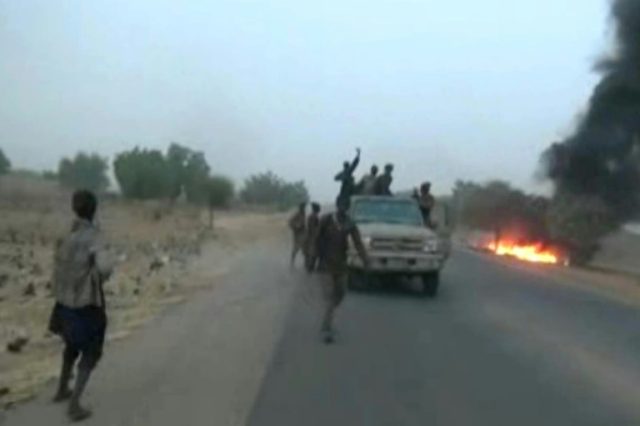Nigeria’s Justice Ministry announced on Monday that it had convicted 205 defendants accused of being members of the Islamic State affiliate Boko Haram. Abuja freed over 500 such suspects this week, however, indicating that less than half of those processed by the Nigerian court system are being convicted.
Over one thousand suspects remain detained at a military center in Niger state, which the government has moved to empty as soon as possible. While arresting thousands, the government has largely failed to stop the jihadists from mass abducting girls throughout the nation’s northeast and using them as sex slaves and suicide bombers. President Muhammadu Buhari has repeatedly insisted that his government has defeated Boko Haram, only to have his remarks followed by a significant terrorist attack.
On Monday, the special court created to process Boko Haram suspects announced the conviction of 205 individuals in a mass trial of 301 people. According to the New Telegraph, 96 suspects were discharged for “lack of evidence.” After trials began last week, the government announced that 82 suspects had pleaded guilty to terrorism charges, erasing the need for a trial in those cases.
In a statement, Nigeria’s Justice Ministry confirmed that the convicts lost their cases “for professing to belong to the terrorist group, concealing information about the group which they knew or believe to be of material assistance that could lead to the arrest, prosecution or conviction of Boko Haram members.”
Reuters notes that the convictions varied from prison sentences of three to 60 years.
The ongoing trials had resulted in the conditional release of 475 people by Friday, however, with those found not guilty forced to enter “rehabilitation” programs to de-radicalize them.
By Monday, that number had gone up to 526 people.
The high number of individuals released calls into question the process for arresting them in the first place. The Nigerian government claims, according to Nigerian newspaper Vanguard, that all those detained and forced into the Niger state military camp were “detained on the basis of information that they either belonged to the proscribed terrorist group, or that they concealed vital information that would have helped security agencies to prevent the commission of acts of terrorism by members of the sect.”
Investigators failed to find evidence linking these individuals to Boko Haram—or found mitigating circumstances, like mental illness—in over 500 of these cases. Many of the most challenging cases are women and girls found living with Boko Haram “husbands” in forced marriages, where they are relegated to sex slavery and subject to jihadist brainwashing. Police highlighted several troubling cases of child brides found as adult mothers and forced into years of confinement in Niger state. Other cases, however, involving individuals that came into contact with Boko Haram in passing—mechanics, local workers who came into contact with Boko Haram—proved more difficult to link with the group.
In some instances, defendants also claimed they were forced to “confess” to being members of Boko Haram under torture.
Against the backdrop of these mass trials, which Abuja is heralding as a victory for justice, Boko Haram launched a raid on a village in Yobe state Monday against the Girls Science Secondary School in Dapchi, triggering widespread fears of another attack akin to the 2014 raid of Chibok, Borno state. The Chibok attack turned Boko Haram into a household name internationally and resulted in hundreds of girls and young women being kidnapped and forced into jihad marriages. Over 100 of the girls abducted remain in captivity, and Boko Haram recently released a video proving some of the girls are alive.
In Yobe, parents say officials have told them between 67 and 94 girls are still missing after the Monday raid. The Yobe chief of police insists, however, that Boko Haram failed to kidnap any schoolgirls, instead raiding the school for food and basic supplies. He did state, however, that the terrorists had kidnapped three boys. Boko Haram uses boys as child soldiers and suicide bombers, though it has recently preferred the use of young girls as suicide bombers as they appear less suspicious.

COMMENTS
Please let us know if you're having issues with commenting.